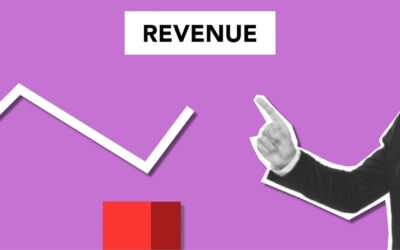Everyone who has ever applied for a job has probably heard of HRD (Human Resource Development). HRD is the department that carries out the entire recruitment process from start to finish.
However, the responsibilities of HRD do not stop there. They are also responsible for all aspects that influence the presence of employees.
What are the roles of HRD, and why is this department so important for companies? Read the full explanation below.
What Is HRD?
From its abbreviation, HRD stands for Human Resource Development, also known as human resource management. Human Resource Management here refers to employees as essential assets in every company.
The task of HRD is to manage all employees from the lowest to the highest levels, which is why it needs to be its own department. In general, HRD is responsible for maximizing employee productivity and avoiding issues related to labor.
The scope of HRD tasks includes recruitment and termination, salary, compensation, and benefits. HRD is required to comply with applicable laws and regulations to protect the company from unnecessary problems.
HRD’s responsibilities include creating Standard Operating Procedures (SOP), recruitment, HR planning, career development, training, and general affairs.
What Are the Benefits of HRD in Companies?
Even at a glance at its tasks, it is evident that HRD provides many benefits to companies. Here are several benefits of HRD for companies:
- Improves the quality of the workforce in terms of skills, attitude, and knowledge.
- Increases employee commitment to work.
- Employees are more adaptable to changes in the working world.
- Work culture is more relevant to the challenges of the times and the demographics of employees.
- Increases employee participation.
- Enhances the effectiveness of decision-making and policies related to employees.
- Boosts work enthusiasm, employee career development, and company growth simultaneously.
What Are the Functions of HRD in Companies?
At a glance, the tasks and roles of HRD have been mentioned. More specifically, here are the functions of HRD within a company:
1. Human Resource Planning
This is the main function of HRD. Before carrying out other functions, HRD must be able to plan what will be done with human resources in the company where it operates.
In the planning stage, HRD ideally can identify what kind of people are suitable to join the company and how many are needed. In other words, HRD must understand the organization’s needs.
2. Recruitment and Employee Selection
The next function is the most well-known, namely employee recruitment and selection. The recruitment and selection process is carried out to get potential talents for the company.
For HRD, this will materialize if they understand the company’s vision and mission well. For this reason, HRD needs to do several things in the recruitment process, such as:
- Identifying the company’s needs.
- Explaining the job description in detail.
- Understanding the abilities and skills desired from candidates.
- Conducting interviews.
- Determining indicators for assessment.
- Providing a good experience for candidates.
- Selecting the most suitable candidate for the company.
These steps can be adapted and modified according to the company’s needs and HRD strategy.
3. Performance Management and Evaluation
HRD has a crucial function, which is to ensure that employees work in a conducive atmosphere to maintain their productivity. This can be achieved if HRD performs performance management and evaluation periodically.
Performance management is done by setting a good example of leadership, setting clear goals, and providing open feedback to employees. Performance management can be carried out by using various tools available, both free and paid.
With these tools, employee performance can be assessed by managers, supervisors, and, in some cases, companies allow assessments from employee to leadership, peer-to-peer, and from supervisors to subordinates. The results of these assessments are then used as a basis for employee career development.
4. Career Development
Employee career development is also one of HRD’s functions. The career development process helps employees achieve their best potential while assisting the company’s growth.
Usually, career development programs are created based on the evaluation of employee performance, but some companies create these programs periodically.
5. Career Planning
This function is also called career pathing. In career planning, HRD needs to look at the potential of employees and then align it with the company’s vision and mission.
In other words, in career planning, HRD can provide opportunities for employees to fulfill their personal ambitions while making the best contributions to the company.
If this function is carried out well, productivity will increase, and employer branding will also be stronger.
Skills Needed by HRD
With tasks and functions that are so important, HRD needs to master several skills or abilities to work optimally. Here are some skills that HRD must possess:
1. Communication
This skill is crucial because it is needed to build relationships with candidates, employees, and top-level management or directors. The communication referred to is not only direct but also includes personal branding on social media.
Because what is displayed on social media also shows the personality that one wants to show to others.
2. Problem Solving
The ability to solve problems is also important for an HRD staff. They not only face personal problems but also need to understand the problems faced by employees and the company.
When that happens, HRD must help resolve the issues, especially if they disrupt employee performance or jeopardize the company. For example, when the performance of Team A decreases allegedly due to personal problems between one of its members and another member, HRD must find a middle ground and the best solution.
3. Recruitment
Selecting suitable candidates for the company is not an easy task. HRD must match employee skills with the company’s needs.
This is seen not only from the candidate’s background but also the skills demonstrated during the selection, ranging from psychometric tests to Focused Group Discussion (FGD).
In this selection process, HRD must be keen and sensitive to determine the right candidate to fill the job vacancy.
4. Strategic Thinking
For the sustainability of the company, HRD must have strategic thinking skills. Because of this, HRD needs to determine strategies to filter the best talents and retain them in the company.
In addition, strategic thinking skills are also needed to carry out HRD functions, namely performance management, where HRD ensures that employees are always in the best position at work. HRD also needs to monitor and evaluate all employees, from staff to managers.
5. Empathy
Lastly, HRD also needs empathy as they will see many conflicts between employees, both at the same level and between staff and leaders. Empathy can help HRD make decisions that can be a win-win solution for all parties.
That’s a brief overview of HRD, its functions, benefits, and the skills needed to be an HRD. To better understand employee management and other HRD-related matters, you can download ASEAN’s Growth & Scale Talent Playbook here.



